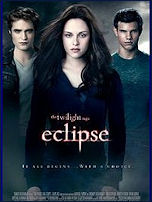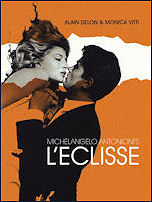Movieline‘s Stu VanAirsdale has satirized L.A. Times film critic Betsy Sharkey for writing glowing things about Atom Egoyan‘s Chloe (and particularly costar Amanda Seyfried) during last September’s Toronto Film Festival, and then going fairly negative in her 3.26 review.
Well, I sympathize because it happens. Any critic who doesn’t admit to having semi-liked or half-tolerated a film at first and then said “what was I thinking?” weeks or months later is not being truthful. Nobody knows everything about everything all the time. The train is always pulling into or leaving a station, and every so often it will lurch and somebody will yank the hand brake. Or tectonic plates will shift in the wee hours. Sometimes a lack of sleep has an effect.
Just as often critics will pan something and then realize down the road they were having a bad day or whatever. Like the critics who ripped 2001: A Space Odyssey or Bonnie and Clyde after their initial exposures, only to re-think things.
I was way too easy on Indiana Jones and the Kingdom of the Crystal Skull when I saw it in Cannes, although I did say it “lacks the stuffings of a great adventure film” and that I wished Spielberg, et. al. “had attempted at least a superficial injection of a little heart and soul.” I have no explanation other than I should have been tougher and snarlier. (Was I feeling kindly because I spoke to Harrison Ford at a cocktail party a day before seeing it? Pathetic excuse.)
I went fairly positive for Eyes Wide Shut after my first looksee only to pull back after seeing it a second time. Since all Kubrick films always seem a bit fuller or deeper or more thoughtful after the second viewing I expected that EWS would follow suit — but it didn’t. It went down in estimation.
And I praised Tim Burton‘s Planet of the Apes when I first saw it, and I know I’ll never live that down. I also half-panned The Royal Tenenbaums at first only to modify that view after a second exposure a few days later.





